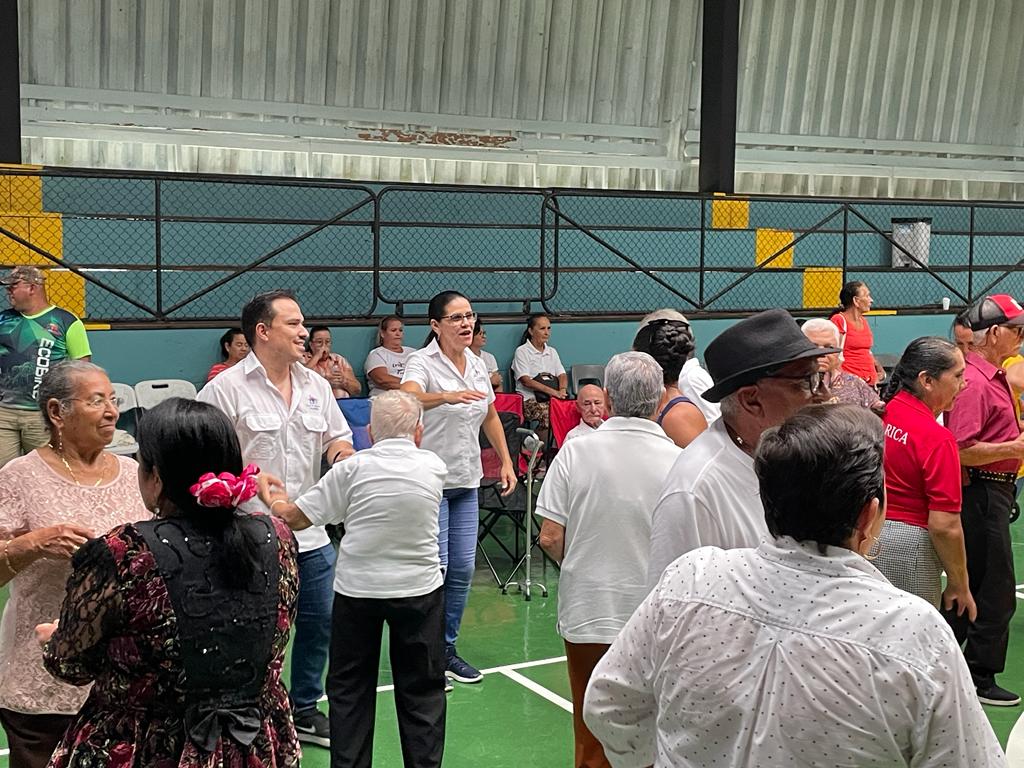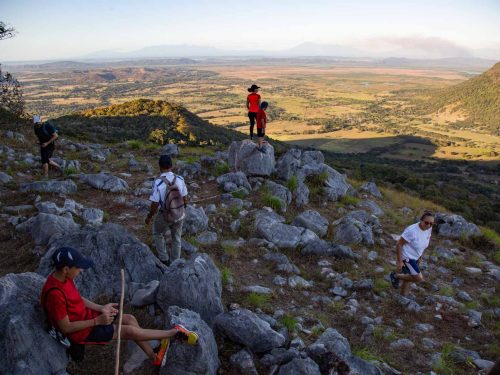
Can you imagine your canton having accessible sidewalks and benches that are comfortable and safe? Now think about parks and other places in town being suitable for you, even as you grow older.
Toward the end of last year, the Municipality of Tilaran joined the Network of Age-Friendly Cities and Communities, a World Health Organization (WHO) program aimed at ensuring that people have healthy and active lives, regardless of age.
To date, 23 municipalities in Costa Rica are enrolled in this program, which includes a total of 803 cities from different parts of the world. In addition, the project wants to get more and more local governments to join.
The network shares and draws on the experiences of communities around the world that are striving to make their cities and towns age-friendly. WHO explains that “an age-friendly city adapts its structures and services for them to be accessible and inclusive of elderly people with diverse needs and abilities.”
This adaptation involves different aspects of the community, such as housing construction, health programs and community infrastructure. In each of these areas, changes can be implemented that may be small in appearance but that make a transcendental difference for everyone.
Technical support to local governments in Costa Rica is provided by the Ministry of Health, the Municipal Development and Advisory Institute (Spanish acronym: IFAM), the Pan American Health Organization (PAHO), the National Association of Mayors and Administrations (Spanish acronym: ANAI), the Yamuni Tabush Foundation, the University of Costa Rica (UCR) and the Board of Pensions and Retirement for National Education Professionals (Spanish acronym: JUPEMA).
“The intention is to promote healthy aging from youth on, so that our elderly stage is active and full,” explained Carolina Urcuyo, IFAM communicator. Urcuyo stressed that local governments need to react to avoid unwanted loneliness and depression, one of the illnesses that can silently strike their elderly population.
Advantages of the Project
The Network of Age-Friendly Cities and Communities is an experience-based guide to taking action.
If you, as a municipality, are interested in learning about international experiences on changes in the city and in local politics to innovate in caring for these population groups, we have a very good opportunity here,” the IFAM spokesperson described.
It’s also possible to coordinate efforts with government institutions and international cooperation to develop community projects.
WHO estimates that a quarter of the population of Latin America and the Caribbean will be older than 60 years of age by 2050. This is a challenge for all of the communities of Guanacaste and of the country. That’s why local governments should consult and understand the elderly population so that community initiatives make sense long term.
“All of the cantons should be committed to this population because it’s the age that we’re all going to reach. It’s a population that needs to have places without physical or social barriers, with policies and services to feel comfortable,” said the vice mayor of Tilaran, Katherine Alfaro Lopez.
She explained that the municipality is preparing a diagnosis of the canton’s elderly population to have a clear understanding of their needs.
Participation in these processes isn’t just to have a certificate. It’s an ethical and citizen commitment to meet the needs of our population,” added Alfaro.
You can motivate your local government to join the Network of Age-Friendly Cities and Communities. Interested municipalities can contact Carolina Urcuyo, who is directly linked to the network, at her email, [email protected].







Comments